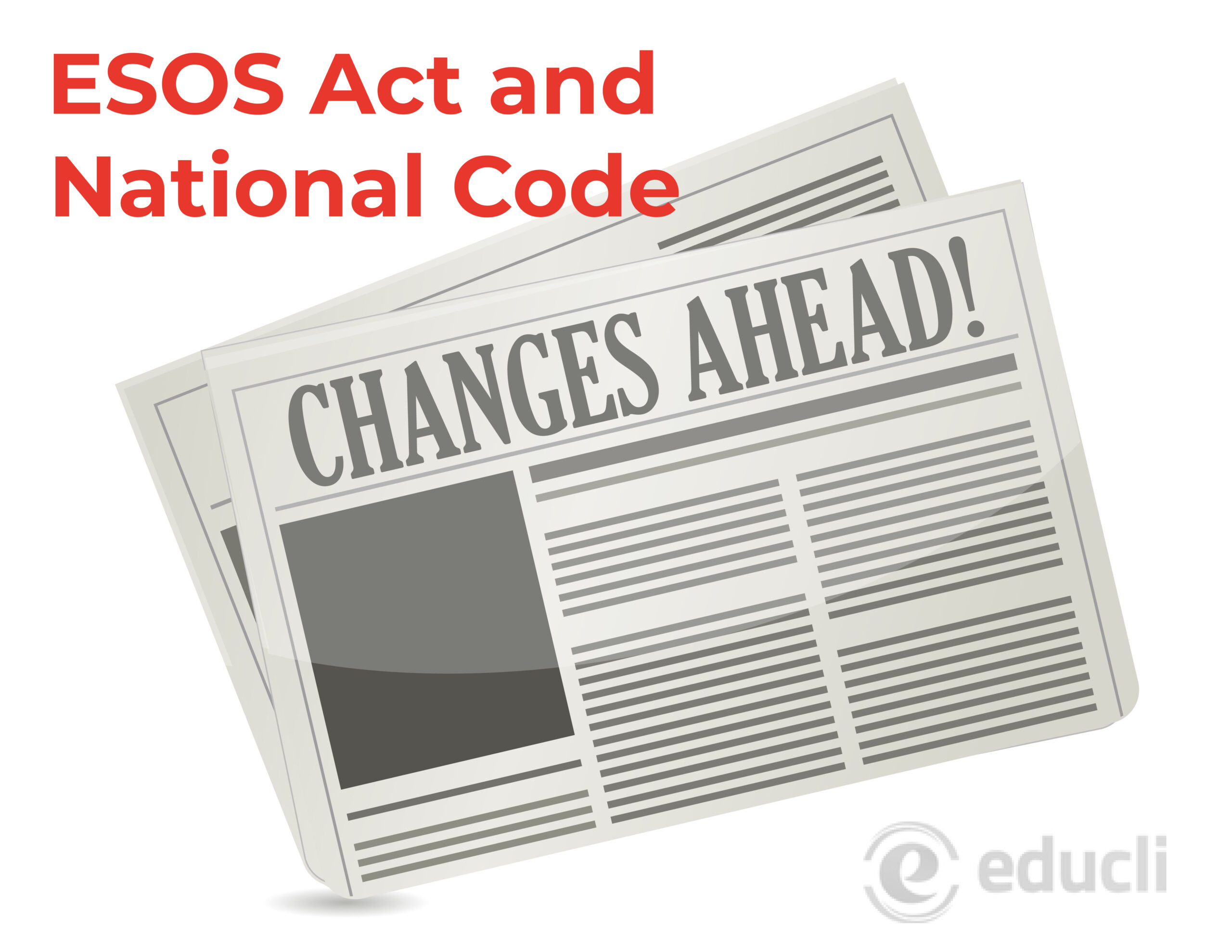A representative from Australia’s Department of Education has stated that this upcoming school year will see sweeping changes implemented in an effort to crack down on fraudulent behavior on the part of agents and the assistance of onshore agents in the course switching of non-genuine students.
Minister O’Neill announced the migration review on April 27. It will require extensive collaboration between the Department of Home Affairs and the Departments of Education and Employment. As a result of the forthcoming migration review, it is also contemplating modifying the ESOS National Code and written agreements between students and institutions.
Alison Cleary, who is currently acting as the assistant secretary of the International Quality Branch in the Education Department’s International Division, discussed potential changes the government is considering in regards to international students. There are ongoing discussions about how to link student visas with schools and English proficiency. The government is keeping a close eye on “rogue or inappropriate” agent behavior and discussing potential changes to written agreements with international students with the industry to determine the best course of action.
Although no final decisions have been made and consultations are still ongoing, the government is hoping to introduce a comprehensive set of reforms this year. Specifically, “we are aware that this is an area of enduring concern in the sector where there might be a possibility for education agents to be acting outside of the requirement to act ethically in the best interests of the student,” Cleary said.
It is “extremely disturbing,” she continued, that agents are facilitating enrollments for the purposes of human trafficking.
“There is also a general concern among the sector and among students that high commissions and the market power wielded by agents may distort the way that the market for international students is operating. The industry and its reputation are at risk if these actions are allowed to continue unchecked. There will be “some downward pressure” on agent commissions from the department. However, she noted that “it is quite a tricky matter” to regulate offshore agents. Despite our familiarity with the concept of a fully regulated model, putting it into practice is extremely difficult. Therefore, we are investigating alternative methods for mitigating the dangers posed by malicious or otherwise inappropriate agent conduct.
According to Cleary, the government is thinking about the student visa system in the context of the upcoming migration review. According to previous reports by The PIE, there are concerns that in-country agents are taking advantage of the current system by encouraging students to switch institutions while they are still onshore.
The right of the student as a consumer to have some choice in how they might transfer is also taken into account as we consider a variety of market-based approaches that are intended to increase transparency. She remarked, “There are situations in which a transfer is an acceptable consumer option.” She further explained that any upcoming changes will be made to be “easily digestible” by the industry by taking into account all relevant factors.
She went on to say that the procedure has to be in line with Australian consumer law and competition policy. Limiting commissions could have unintended consequences like “pushing commissions underground,” according to one theory. We are investigating a variety of market-based methods that aim to improve clarity: We are of the opinion that a hard cap is not the only solution, and that there may be others that are both more effective and less of a regulatory burden.
Cleary acknowledged that English proficiency is critical for student workforce and employability outcomes, particularly in light of international students being a “major feeder group for Australia’s permanent migration strategy,” and the department can see how institutions are assessing English proficiency via PRISMS.
In November of last year, a report from the Commonwealth Ombudsman’s office suggested that written agreements, that international students must sign to enrol at Australian education providers, appeared “unfair and unreasonable” in some cases during the pandemic. Written agreements are “really a tangible demonstration of our reputation, our commitment to fairness, and providing a really good student experience,” she said.
The Ombudsman “particularly noticed” that students do not have much opportunity to negotiate the contracts; thus, they need to be considered under standard contract terms, which will impact Australian consumer law regarding the responsibilities and obligations of both parties. This is despite the fact that the National Code already provides requirements around how these agreements should be structured.
She explained that in order to meet their obligations under consumer law and to put their best foot forward in terms of their reputation with students, the department is “considering options and asking for views about how we can once again get that balance right between responsibilities and obligations for both parties.”
To “make clear or provide guidance and support” provider to guarantee agreements will meet all obligations and aspirations for the documents, one option is to introduce non-mandatory model clauses, which would require convening a separate consultative process.
Tuition Protection Service refund operations for international and domestic students are being looked at to see if they can be more closely aligned. In April 2022, TPS was rated “a suitable tuition protection mechanism for international education” in a Nous report.
“There is a broader conversation about how refunds are handled in terms of written agreements and so on. Cleary predicted that the changes they would consider would be minor in scope and added that they would likely be incorporated into a larger process of reviewing refunds.
In ABC radio breakfast interview earlier this week, education minister Jason Clare noted that the March agreement with India on mutual recognition of university qualifications will “make it easier for students in both of our countries to study in each other’s country”. An agreement between prime ministers Narendra Modi and Anthony Albanese will “build on that”, he indicated.
“At the present time, applications from students residing in certain Indian states have been temporarily suspended by a number of universities. I get that because we have seen an increase in the number of visa cancellations after the university application has taken place, after the student is already in Australia and has dropped out of that university qualification,” he said.
The minister went on to say that dishonest education agents are “enticing students to drop out of their university degrees and go into a TAFE qualification or out of the education system altogether.”
She also clarified that while the department is aware of the existence of subagents, its attention is being directed toward the actions of the last entity involved in the recruitment process—the body, entity, organization, person, or business responsible for referring the student to the provider.
Educli developed a set of tools to aid service providers in overseeing their agents and sub-agents. In addition, we provide a paperless enrollment process and student agreements that are accessible in real time and can be viewed in full transparency via the web. Contact us for more information.
#educli #crm #lms #australianeducation #internationalstudents #educationagents





Leave A Comment